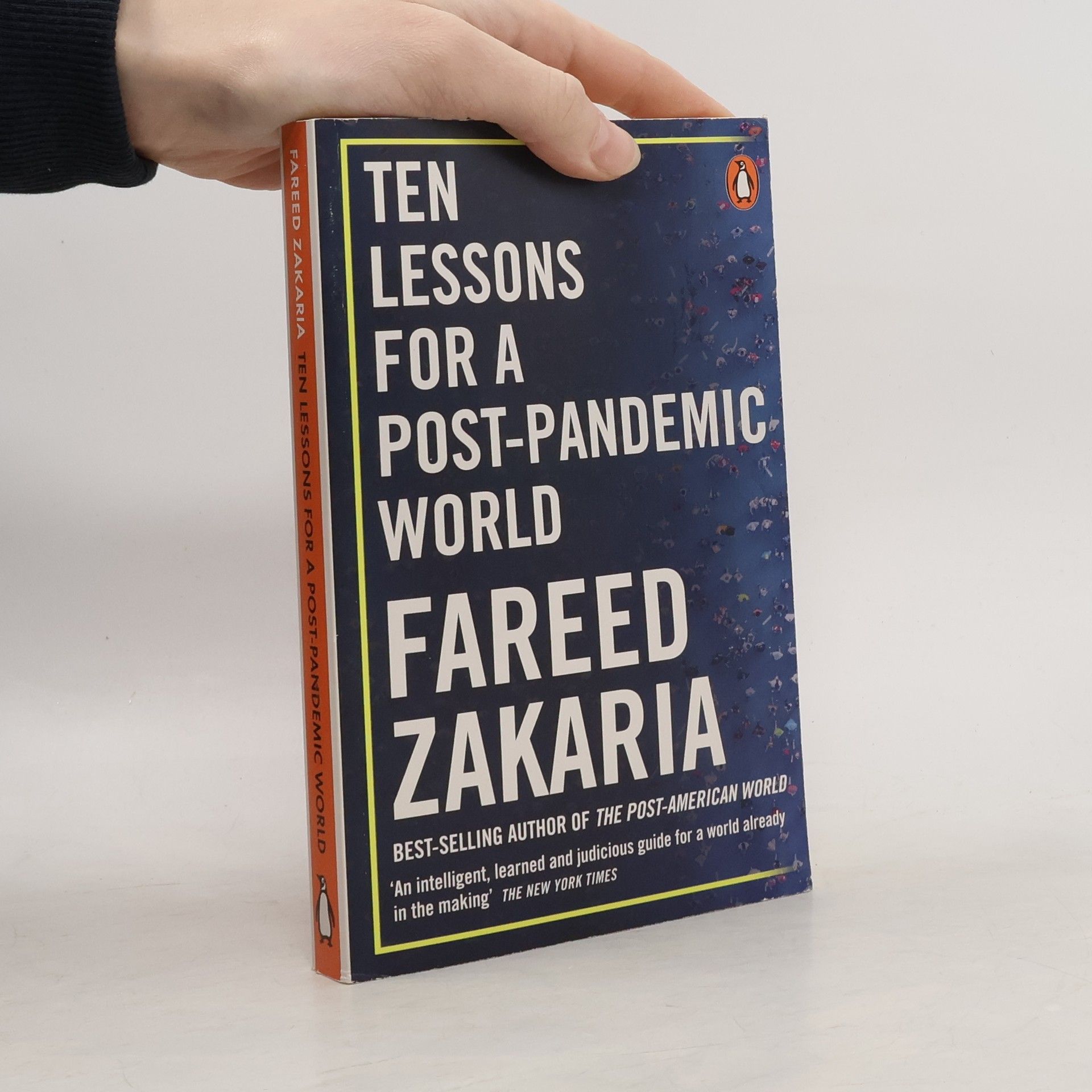Die höchsten Gebäude, mächtigsten Staudämme, größten Flugzeuge und innovativsten Mobiltelefone kommen nicht mehr aus den USA, sondern aus Ländern wie Indien, China, Russland oder Brasilien. In seinem klaren und brillanten Werk zeigt Fareed Zakaria, welche Auswirkungen der rasante wirtschaftliche und politische Aufstieg dieser Staaten auf die westliche Welt hat und gewährt einen überraschenden Einblick in das postamerikanische Zeitalter. Das beispiellose Wachstum und der Wohlstand von Ländern wie Indien, China, Brasilien, Südafrika oder Russland führen zu einem neuen politischen Selbstbewusstsein, das oft skeptisch betrachtet wird. Zakaria ist jedoch überzeugt, dass der 'Aufstieg der Anderen' keine Bedrohung für die globale Sicherheit darstellen muss. Vielmehr liegt es am Westen, ob diese Machtverschiebung als Bedrohung oder Chance für die internationale Politik wahrgenommen wird. Wenn die USA künftig multilaterale Ansätze verfolgen und außenpolitische Alleingänge vermeiden, könnte eine neue multipolare Weltordnung entstehen, die zu größerer Sicherheit und Wohlstand für alle führt. Zakaria bietet nicht nur eine aufschlussreiche Analyse unseres Zeitalters, sondern plädiert auch für einen neuen Ansatz in der internationalen Politik.
Fareed Zakaria Bücher
Fareed Zakaria beschäftigt sich mit internationalen Angelegenheiten und globalen Trends. Durch sein aufschlussreiches Schreiben untersucht er kritisch die Kräfte, die unsere vernetzte Welt prägen, und bietet tiefe Analysen politischer und wirtschaftlicher Dynamiken. Seine Arbeit zeichnet sich durch das Engagement aus, die Ursachen globaler Herausforderungen zu verstehen und eine fundierte Diskussion zu fördern. Zakaria bemüht sich, die vielschichtige Landschaft der modernen Geopolitik einem weltweiten Publikum näherzubringen.







»Eine der bedeutendsten weltpolitischen Trendanalysen des letzten Jahrzehnts.« Samuel Huntington Zakarias spannende Analyse der Auswirkungen des Mehrheitsprinzips auf Politik, Wirtschaft und Zivilgesellschaft ist ein internationaler Bestseller. Eindrucksvoll belegt Zakaria, dass die Demokratisierung keineswegs zu einem Mehr an Freiheit geführt hat. Mit Wahlen allein wäre ja auch kaum etwas gewonnen: Riefe man morgen die arabischen Völker zu den Urnen, kämen wahrscheinlich Gruppierungen an die Macht, die sich als noch weniger tolerant erweisen würden als die derzeitigen Despoten. Akute Krisensymptome wie der Terrorismus setzen die westlichen Demokratien zudem unter Druck. Denn auch die Gewalt hat sich demokratisiert: Wer heute eine schmutzige Bombe bauen will, braucht lediglich eine gute Suchmaschine. Doch gerade jetzt zeigt das politische System Ausfallerscheinungen: Dauerwahlkampf und Anbiederung an die Masse, Spendenaffären und Klientelpolitik haben die Politik diskreditiert. Zakaria beleuchtet die innen- und außenpolitischen Konsequenzen eines allzu dogmatischen Demokratieverständnisses und zeigt, dass häufig nicht mehr, sondern weniger Demokratie vonnöten ist.
Since the end of the Cold War, the world has been shaken to its core three times. 11 September 2001, the financial collapse of 2008 and - most of all - Covid-19. Each was an asymmetric threat, set in motion by something seemingly small, and different from anything the world had experienced before. Lenin is supposed to have said, 'There are decades when nothing happens and weeks when decades happen.' This is one of those times when history has sped up. In this urgent and timely book, Fareed Zakaria, one of the 'top ten global thinkers of the last decade' (Foreign Policy), foresees the nature of a post-pandemic world- the political, social, technological and economic consequences that may take years to unfold. In ten surprising, hopeful 'lessons', he writes about the acceleration of natural and biological risks, the obsolescence of the old political categories of right and left, the rise of 'digital life', the future of globalization and an emerging world order split between the United States and China. Ten Lessons for a Post-Pandemic World speaks to past, present and future, and will become an enduring reflection on life in the early twenty-first century.
The Post-American World
- 292 Seiten
- 11 Lesestunden
"This is not a book about the decline of America, but rather about the rise of everyone else." So begins Fareed Zakaria's important new work on the era we are now entering. Following on the success of his best-selling The Future of Freedom, Zakaria describes with equal prescience a world in which the United States will no longer dominate the global economy, orchestrate geopolitics, or overwhelm cultures. He sees the "rise of the rest"—the growth of countries like China, India, Brazil, Russia, and many others—as the great story of our time, and one that will reshape the world. The tallest buildings, biggest dams, largest-selling movies, and most advanced cell phones are all being built outside the United States. This economic growth is producing political confidence, national pride, and potentially international problems. How should the United States understand and thrive in this rapidly changing international climate? What does it mean to live in a truly global era? Zakaria answers these questions with his customary lucidity, insight, and imagination.
Examining the transformation of wealthy nations into influential global powers, Fareed Zakaria delves into the case of the United States as a prime example of this phenomenon. He explores the dynamics that drive rich countries to project their influence internationally, highlighting the implications for global stability and the emergence of new powers. Through this analysis, the book provides insights into the relationship between national wealth and geopolitical clout in the context of international politics.
In defense of a liberal education
- 208 Seiten
- 8 Lesestunden
The liberal arts face significant challenges as governors in states like Florida, Texas, and North Carolina vow to cut taxpayer funding for these programs, a sentiment echoed by President Obama, who suggested that vocational training may offer better financial prospects. This perspective has led to a decline in traditional majors such as English and history. Fareed Zakaria reflects on his upbringing in India, where a skills-based education was highly prioritized, yet he argues that this view is fundamentally flawed. He highlights the essential skills gained from a liberal arts education, including clear writing, persuasive expression, and analytical thinking. Zakaria counters the vocational argument by pointing out the automation and outsourcing of routine manufacturing jobs, emphasizing that specific vocational skills can quickly become obsolete. While engineering is valuable, he stresses the importance of creativity, lateral thinking, design, communication, storytelling, and a lifelong passion for learning—qualities nurtured by a liberal education. He also notes that technology is revolutionizing education, making high-quality courses accessible to millions globally, marking the beginning of an unprecedented expansion of liberal education.
Age of Revolutions
- 399 Seiten
- 14 Lesestunden
The CNN host and best-selling author explores the revolutions--past and present--that define the chaotic, polarized, and unstable age in which we live.
Věk revolucí: Proměny světa od 17. století do současnosti
- 392 Seiten
- 14 Lesestunden
Které revoluce skutečně mění svět? První desetiletí 21. století je možná nejrevolučnějším obdobím moderních dějin. Jaké revoluce hýbou dějinami a jak nám pomáhají porozumět našemu neklidnému světu? Autor mistrně zkoumá epochy a hnutí, které otřásly normami a formovaly naši dobu: fascinující zbohatnutí Nizozemska v 17. století, Francouzskou revoluci s jejím krvavým dědictvím a průmyslovou revoluci, která katapultovala Velkou Británii a USA ke globální dominanci. Kromě těchto historických událostí se zaměřuje na čtyři současné revoluce, které skutečně mění naši společnost: globalizaci, technologii, otázky identity a geopolitiku. Globalizace a technologie přinesly nejen výhody, ale i hluboké narušení a úzkost. Identita se stává bitevním polem polarizované politiky 21. století, zatímco geopolitické změny nabírají na intenzitě. Nacházíme se na rozhraní čtyř revolucí, které predikují temnou budoucnost. Autor však ukazuje, že pesimismus je předčasný. Pokud budeme jednat moudře, liberální mezinárodní řád může být oživen a populismus odsunut na smetiště dějin. Přichází s novým revolučním pohledem na éru, v níž žijeme.
Vek revolúcií
Pokrok a odpor od roku 1600 po súčasnosť


